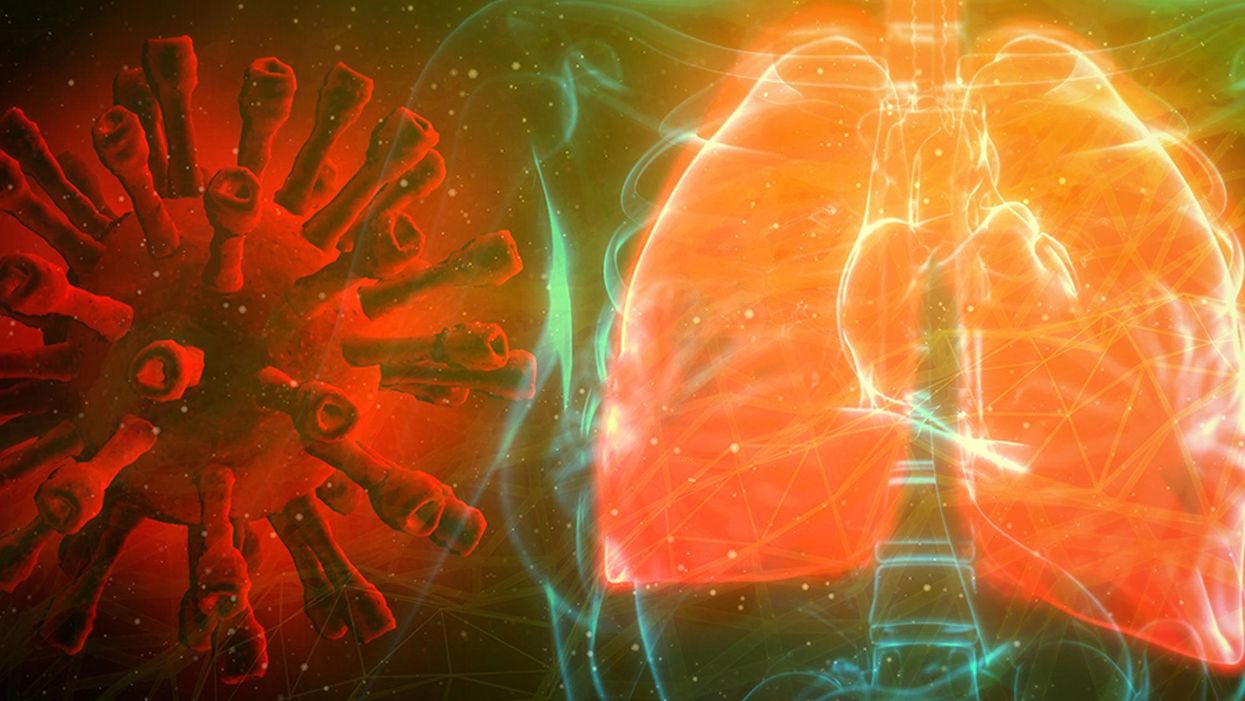Dec. 17th Event: The Latest on Omicron, Boosters, and Immunity
Kira Peikoff was the editor-in-chief of Leaps.org from 2017 to 2021. As a journalist, her work has appeared in The New York Times, Newsweek, Nautilus, Popular Mechanics, The New York Academy of Sciences, and other outlets. She is also the author of four suspense novels that explore controversial issues arising from scientific innovation: Living Proof, No Time to Die, Die Again Tomorrow, and Mother Knows Best. Peikoff holds a B.A. in Journalism from New York University and an M.S. in Bioethics from Columbia University. She lives in New Jersey with her husband and two young sons. Follow her on Twitter @KiraPeikoff.
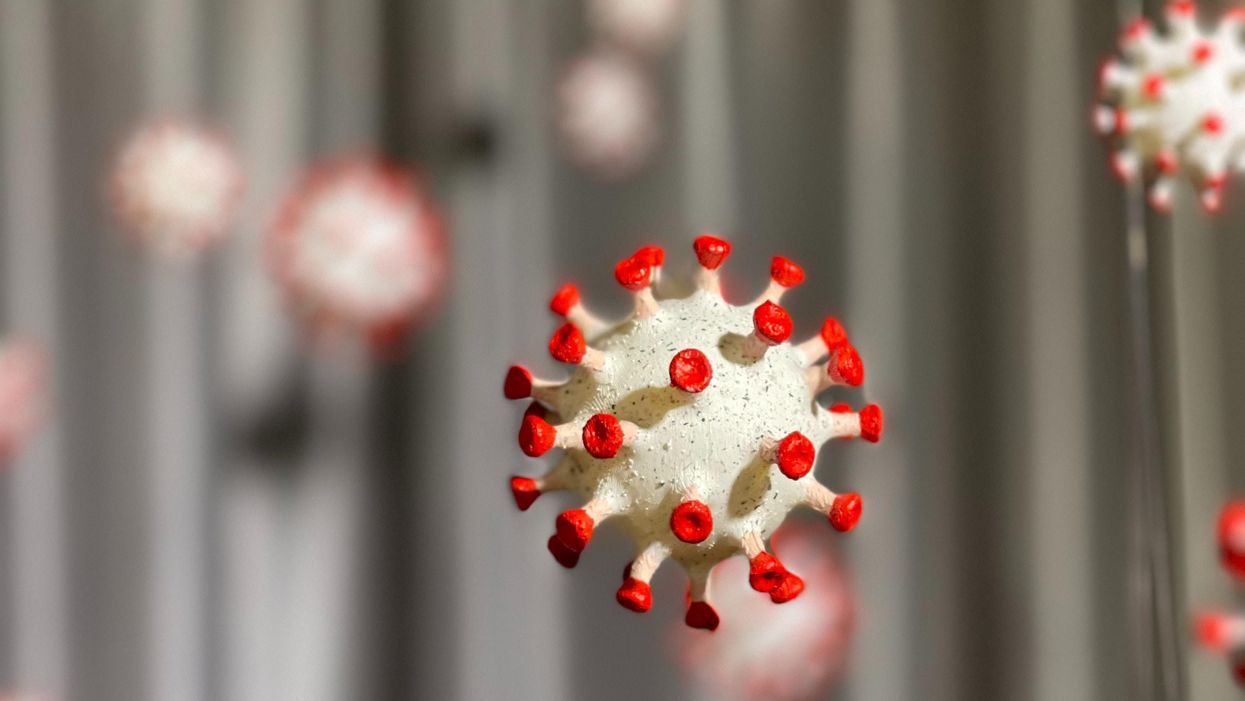
The Omicron variant poses new uncertainty for the vaccines, which four leading experts will address during our virtual event on December 17th, 2021.
This virtual event will convene leading scientific and medical experts to discuss the most pressing questions around the new Omicron variant, including what we know so far about its ability to evade COVID-19 vaccines, the role of boosters in eliciting heightened immunity, and the science behind variants and vaccines. A public Q&A will follow the expert discussion.
EVENT INFORMATION:
Date: Friday Dec 17, 2021
2:00pm - 3:30pm EST

Dr. Céline Gounder, MD, ScM, is the CEO/President/Founder of Just Human Productions, a non-profit multimedia organization. She is also the host and producer of American Diagnosis, a podcast on health and social justice, and Epidemic, a podcast about infectious disease epidemics and pandemics. She served on the Biden-Harris Transition COVID-19 Advisory Board.
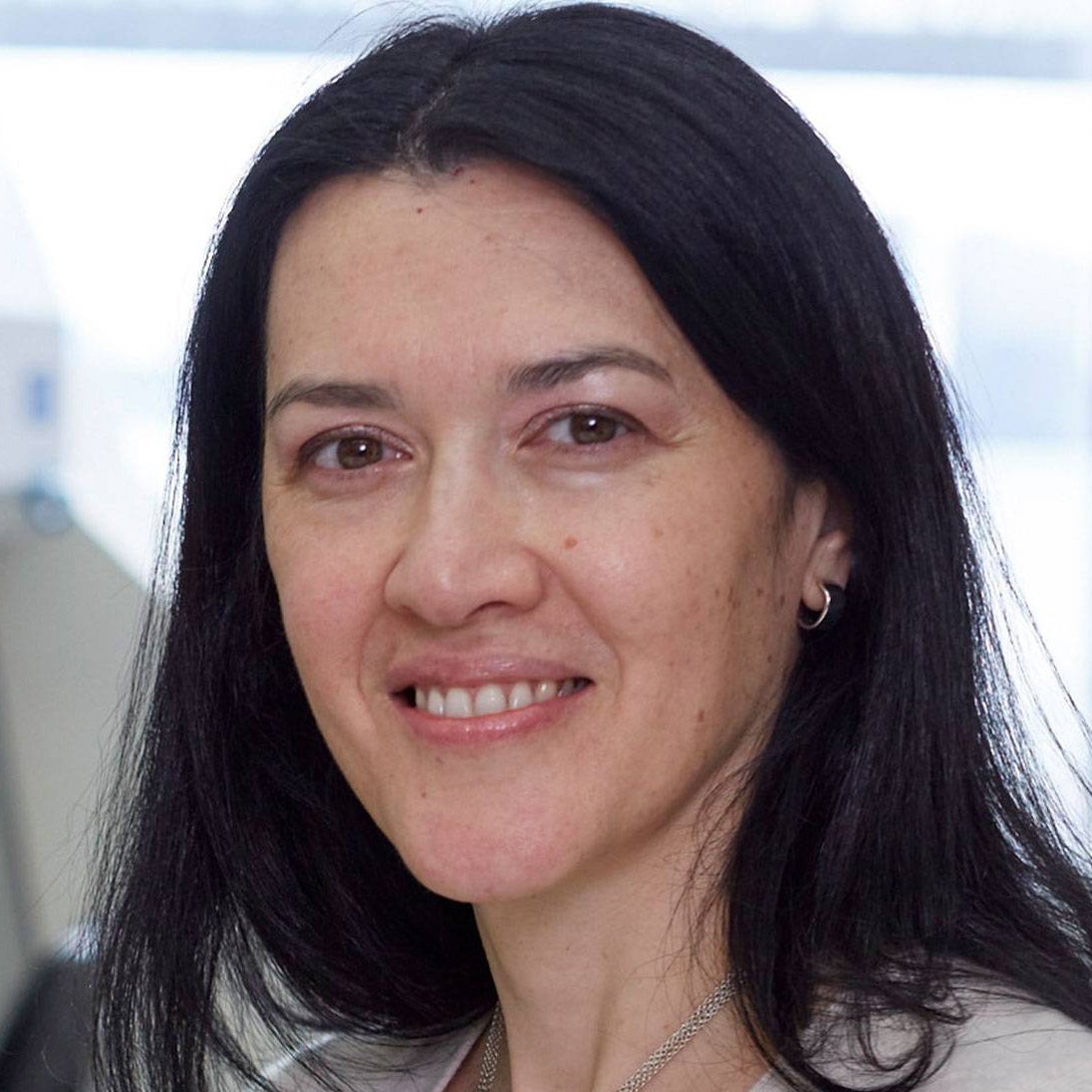 Dr. Theodora Hatziioannou, Ph.D., is a Research Associate Professor in the Laboratory of Retrovirology at The Rockefeller University. Her research includes identifying plasma samples from recovered COVID-19 patients that contain antibodies capable of neutralizing the SARS-CoV-2 coronavirus.
Dr. Theodora Hatziioannou, Ph.D., is a Research Associate Professor in the Laboratory of Retrovirology at The Rockefeller University. Her research includes identifying plasma samples from recovered COVID-19 patients that contain antibodies capable of neutralizing the SARS-CoV-2 coronavirus.

Dr. Onyema Ogbuagu, MBBCh, is an Associate Professor at Yale School of Medicine and an infectious disease specialist who treats COVID-19 patients and leads Yale’s clinical studies around COVID-19. He ran Yale’s trial of the Pfizer/BioNTech vaccine.
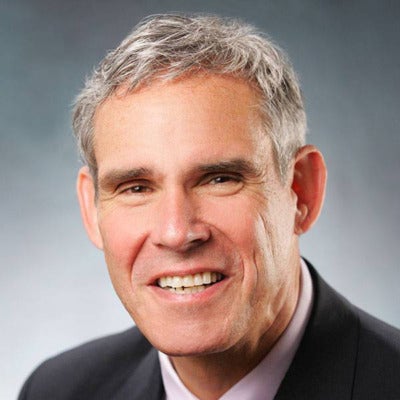
Dr. Eric Topol, M.D., is a cardiologist, scientist, professor of molecular medicine, and the director and founder of Scripps Research Translational Institute. He has led clinical trials in over 40 countries with over 200,000 patients and pioneered the development of many routinely used medications.
This event is the fourth of a four-part series co-hosted by Leaps.org, the Aspen Institute Science & Society Program, and the Sabin–Aspen Vaccine Science & Policy Group, with generous support from the Gordon and Betty Moore Foundation and the Howard Hughes Medical Institute.
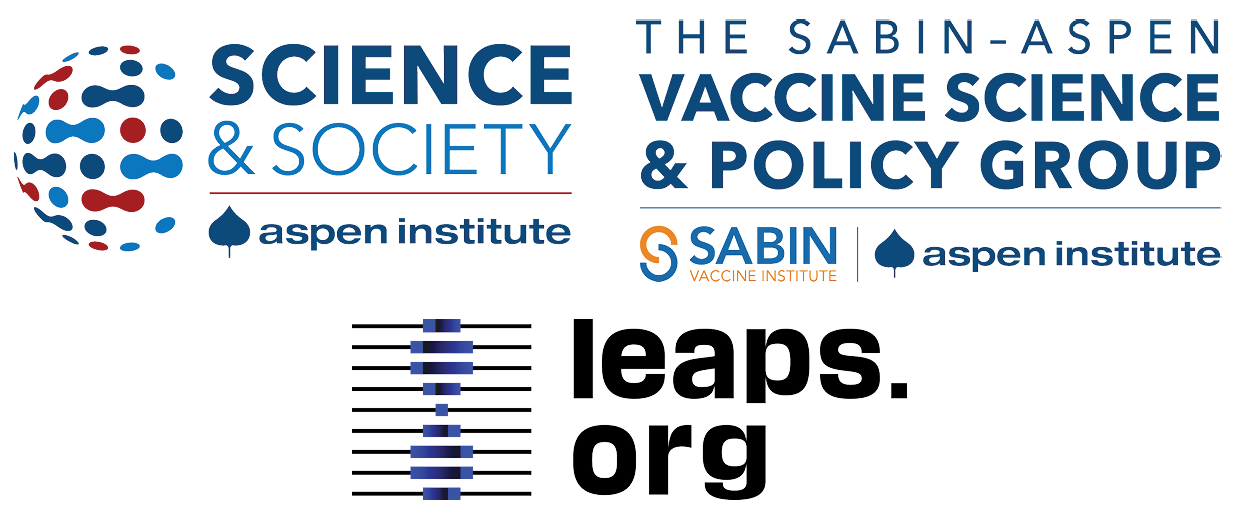
Kira Peikoff was the editor-in-chief of Leaps.org from 2017 to 2021. As a journalist, her work has appeared in The New York Times, Newsweek, Nautilus, Popular Mechanics, The New York Academy of Sciences, and other outlets. She is also the author of four suspense novels that explore controversial issues arising from scientific innovation: Living Proof, No Time to Die, Die Again Tomorrow, and Mother Knows Best. Peikoff holds a B.A. in Journalism from New York University and an M.S. in Bioethics from Columbia University. She lives in New Jersey with her husband and two young sons. Follow her on Twitter @KiraPeikoff.
A digital health passport required by businesses and universities could help us get back to normal more quickly, one expert argues.
"Vaccine passports" are a system that requires proof of a COVID-19 vaccination as a condition of engaging in activities that pose a risk of transmitted SARS-CoV-2. Digital Health Passes (DHPs) are typically a smartphone application with a code that verifies whether someone has been vaccinated.
Vaccine passports could very much be in our future. Many businesses are implementing or planning to require proof of vaccination as a condition of returning to the workplace. Colleges and universities have announced vaccine requirements for students, staff, and faculty. It may not be long before the private sector requires a vaccination card or image to attend an entertainment or sporting event, to travel, or even to dine or shop indoors, at least in some venues.
But it's unlikely the federal government or the states will launch DHPs, at least not in the near-term. President Biden announced the White House has no intention of requiring proof of vaccination. While no state has mandated DHPs, New York is piloting its Excelsior Pass on a voluntary basis, partnering with IBM. Other nations are not so hesitant. Israel's "Green Pass" has gotten the nation back to normal in record time. And various countries and regions are planning DHPs, including the European Union and the United Kingdom. Foreign airlines are likely to require proof of vaccination as a condition of flying internationally.
DHPs could emerge as a way to get us back to normal more quickly, but are they ethical? Let's start with the law. The US Equal Opportunity Commission (EEOC) has specifically said that employers have the legal right to require proof of vaccination as a condition of returning to work. Colleges and universities already require several vaccines for students living in dorms. Hospitals and nursing homes often mandate influenza vaccinations. And, of course, all states require childhood vaccinations for school attendance. Vaccine passports are lawful but are they ethical? The short answer is "yes" but only if we ensure no one is left behind.
Vaccine passports "don't force anyone to be vaccinated against his or her will. They simply say to individuals that if you choose not to be vaccinated, you can't work or recreate in public spaces that risk transmission of the virus."
Why are vaccine passports ethical? Vaccines are a miracle of modern science, but they have become a political symbol, and a significant part of the population doesn't want to get a jab. The rare cases of blood clots associated with the Johnson & Johnson and AstraZeneca vaccines have only created more distrust.
Most opposition to vaccine passports hinges on the claim that they infringe personal autonomy and liberty. But this argument misses the point. Of course, every competent adult has the right to make decisions that affect his or her own health and safety. But no one has a right to infringe on the rights of others, such as by exposing them to a potentially serious or deadly infectious disease. An individual can't claim the right to attend a crowded event mask-less and unvaccinated. This was once accepted across the political spectrum. Conservative economists called it an "externality," that is a person has no right to harm others. The U.S. has lost the tradition of the common good. We have become so focused on our own individual rights that we forget about our ethical obligations to our neighbors and to our community.
In fact, DHPs actually don't force anyone to be vaccinated against his or her will. They simply say to individuals that if you choose not to be vaccinated, you can't work or recreate in public spaces that risk transmission of the virus.
DHPs also don't infringe on privacy. Again, everyone has the choice whether to show proof of vaccination. It isn't required. Moreover, DHPs may actually protect privacy because all they do is show whether or not you have been vaccinated. They don't disclose any other personal medical information. All of us actually have already had to show proof of vaccination as a condition of going to school. Thus, DHPs are well established in the United States.
But there is one ethical argument against DHPs that I find to be powerful, and that is equity. If we require proof of vaccination while doses are scarce, we will give the already privileged even more privilege. And that would be unconscionable. Thus, DHPs should not be implemented until everyone who wants a vaccine is able to get a vaccine. Equity isn't a side issue. It needs to be front and center.
As of today, all adults in the U.S. are eligible to get vaccinated, and President Biden has pledged that by the end of May there will be enough doses to vaccinate the entire U.S. population. It is a realistic promise. Once vaccines become plentiful, everyone should get their shot. All Food and Drug Administration authorized vaccines are highly safe and effective, even the Johnson & Johnson vaccine that the FDA has just put on pause.
Businesses have an economic incentive to require proof of vaccination. Very few of us would feel comfortable returning to our jobs, shops, theaters, or restaurants unless we feel safe. Businesses understand the duty to create safer places for work, recreation, and commerce.
One question has dominated national conversation since the pandemic began. "When will we get back to normal?" There is a deep human yearning to hug family and friends, see our work colleagues, recreate, and be entertained. One day we will have defeated this wily virus and get back to normal. But vaccine passports can help us get back to the things we love faster and more safely. As long as we don't leave anyone behind, using this miracle of modern science to make our lives better is both lawful and ethical.
Editor's Note: This op/ed is part of a "Big Question" series on the ethics of vaccine passports. Read the flip-side argument here.
The Pandemic Is Ushering in a More Modern—and Ethical—Way of Studying New Drugs and Diseases
Miniature lab-grown models of human organs have major advantages over standard animal testing.
Before the onset of the coronavirus pandemic, Dutch doctoral researcher Joep Beumer had used miniature lab-grown organs to study the human intestine as part of his PhD thesis. When lockdown hit, however, he was forced to delay his plans for graduation. Overwhelmed by a sense of boredom after the closure of his lab at the Hubrecht Institute, in the Netherlands, he began reading literature related to COVID-19.
"By February [2020], there were already reports on coronavirus symptoms in the intestinal tract," Beumer says, adding that this piqued his interest. He wondered if he could use his miniature models – called organoids -- to study how the coronavirus infects the intestines.
But he wasn't the only one to follow this train of thought. In the year since the pandemic began, many researchers have been using organoids to study how the coronavirus infects human cells, and find potential treatments. Beumer's pivot represents a remarkable and fast-emerging paradigm shift in how drugs and diseases will be studied in the coming decades. With future pandemics likely to be more frequent and deadlier, such a shift is necessary to reduce the average clinical development time of 5.9 years for antiviral agents.
Part of that shift means developing models that replicate human biology in the lab. Animal models, which are the current standard in biomedical research, fail to do so—96% of drugs that pass animal testing, for example, fail to make it to market. Injecting potentially toxic drugs into living creatures, before eventually slaughtering them, also raises ethical concerns for some. Organoids, on the other hand, respond to infectious diseases, or potential treatments, in a way that is relevant to humans, in addition to being slaughter-free.

Human intestinal organoids infected with SARS-CoV-2 (white).
Credit: Joep Beumer/Clevers group/Hubrecht Institute
Urgency Sparked Momentum
Though brain organoids were previously used to study the Zika virus during the 2015-16 epidemic, it wasn't until COVID-19 that the field really started to change. "The organoid field has advanced a lot in the last year. The speed at which it happened is crazy," says Shuibing Chen, an associate professor at Weill Cornell Medicine in New York. She adds that many federal and private funding agencies have now seen the benefits of organoids, and are starting to appreciate their potential in the biomedical field.
Last summer, the Organo-Strat (OS) network—a German network that uses human organoid models to study COVID-19's effects—received 3.2 million euros in funding from the German government. "When the pandemic started, we became aware that we didn't have the right models to immediately investigate the effects of the virus," says Andreas Hocke, professor of infectious diseases at the Charité Universitätsmedizin in Berlin, Germany, and coordinator of the OS network. Hocke explained that while the World Health Organization's animal models showed an "overlap of symptoms'' with humans, there was "no clear reflection" of the same disease.
"The network functions as a way of connecting organoid experts with infectious disease experts across Germany," Hocke continues. "Having organoid models on demand means we can understand how a virus infects human cells from the first moment it's isolated." Overall, OS aims to create infrastructure that could be applied to future pandemics. There are 28 sub-projects involved in the network, covering a wide assortment of individual organoids.
Cost, however, remains an obstacle to scaling up, says Chen. She says there is also a limit to what we can learn from organoids, given that they only represent a single organ. "We can add drugs to organoids to see how the cells respond, but these tests don't tell us anything about drug metabolism, for example," she explains.
A Related "Leaps" in Progress
One way to solve this issue is to use an organ-on-a-chip system. These are miniature chips containing a variety of human cells, as well as small channels along which functions like blood or air flow can be recreated. This allows scientists to perform more complex experiments, like studying drug metabolism, while producing results that are relevant to humans.

An organ-on-a-chip system.
Credit: Fraunhofer IGB
Such systems are also able to elicit an immune response. The FDA has even entered into an agreement with Wyss Institute spinoff Emulate to use their lung-on-a-chip system to test COVID-19 vaccines. Representing multiple organs in one system is also possible. Berlin-based TissUse are aiming to make a so-called 'human on a chip' system commercially available. But TissUse senior scientist Ilka Maschmeyer warns that there is a limit to how far the technology can go. "The system will not think or feel, so it wouldn't be possible to test for illnesses affecting these abilities," she says.
Some challenges also remain in the usability of organs-on-a-chip. "Specialized training is required to use them as they are so complex," says Peter Loskill, assistant professor and head of the organ-on-a-chip group at the University of Tübingen, Germany. Hocke agrees with this. "Cell culture scientists would easily understand how to use organoids in a lab, but when using a chip, you need additional biotechnology knowledge," he says.
One major advantage of both technologies is the possibility of personalized medicine: Cells can be taken from a patient and put onto a chip, for example, to test their individual response to a treatment. Loskill also says there are other uses outside of the biomedical field, such as cosmetic and chemical testing.
"Although these technologies offer a lot of possibilities, they need time to develop," Loskill continues. He stresses, however, that it's not just the technology that needs to change. "There's a lot of conservative thinking in biomedical research that says this is how we've always done things. To really study human biology means approaching research questions in a completely new way."
Even so, he thinks that the pandemic marked a shift in people's thinking—no one cared how the results were found, as long as it was done quickly. But Loskill adds that it's important to balance promise, potential, and expectations when it comes to these new models. "Maybe in 15 years' time we will have a limited number of animal models in comparison to now, but the timescale depends on many factors," he says.
Beumer, now a post-doc, was eventually allowed to return to the lab to develop his coronavirus model, and found working on it to be an eye-opening experience. He saw first-hand how his research could have an impact on something that was affecting the entire human race, as well as the pressure that comes with studying potential treatments. Though he doesn't see a future for himself in infectious diseases, he hopes to stick with organoids. "I've now gotten really excited about the prospect of using organoids for drug discovery," he says.
The coronavirus pandemic has slowed society down in many respects, but it has flung biomedical research into the future—from mRNA vaccines to healthcare models based on human biology. It may be difficult to fully eradicate animal models, but over the coming years, organoids and organs-on-a-chip may become the standard for the sake of efficacy -- and ethics.
Jack McGovan is a freelance science writer based in Berlin. His main interests center around sustainability, food, and the multitude of ways in which the human world intersects with animal life. Find him on Twitter @jack_mcgovan."

